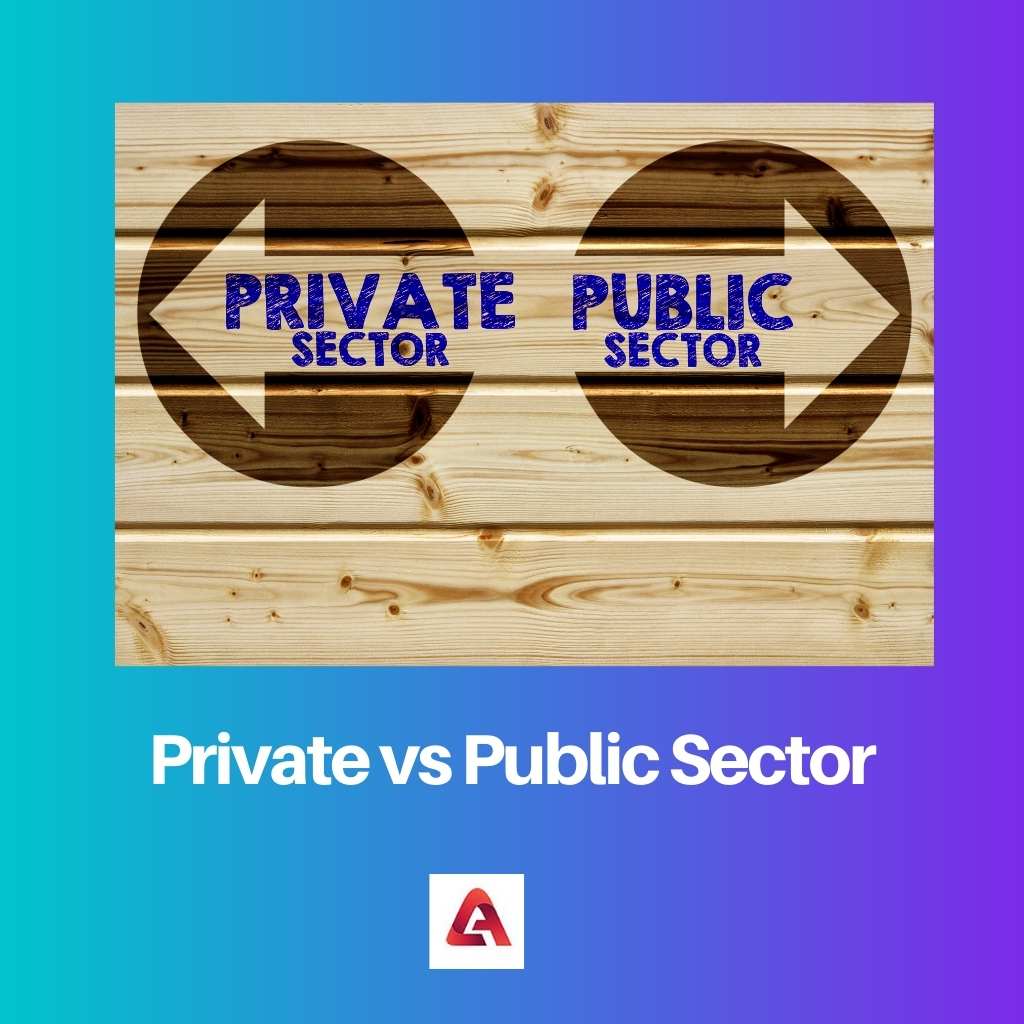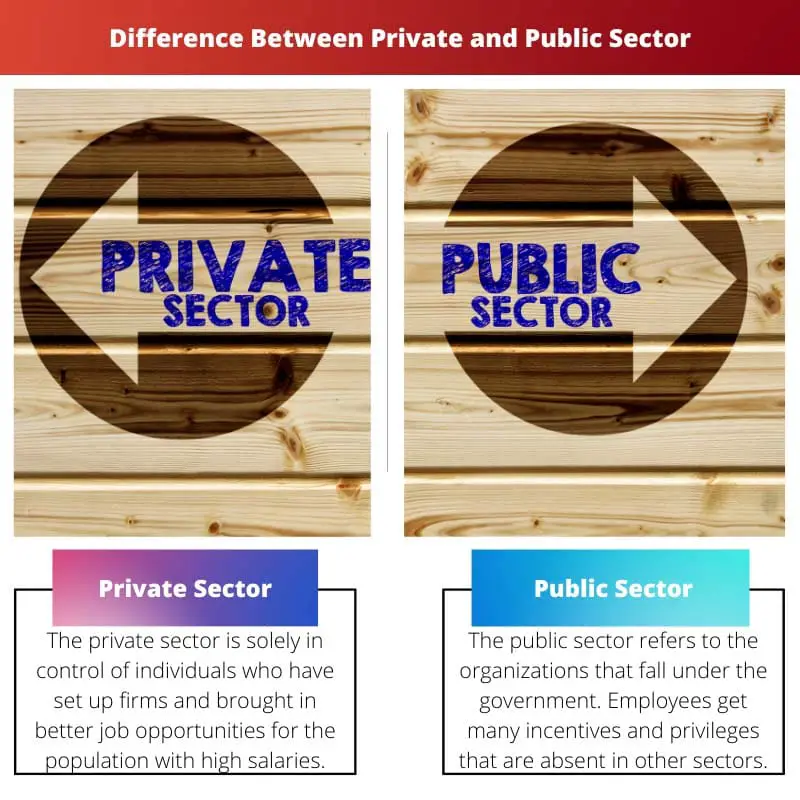The private and public sectors are needed for the development of the nation as it eventually leads to the rise of the GDP of a nation.
It is either under the control of the government or of individuals who might be business magnates. Both these sectors increase the job opportunities in a country, which indirectly leads to a better lifestyle and habits.
Key Takeaways
- The private sector comprises businesses and organizations owned by individuals or shareholders, while the public sector includes government agencies and services.
- Private sector organizations aim to generate profits, whereas public sector organizations focus on providing essential services and maintaining public welfare.
- Public sector jobs offer greater job security and benefits, while private sector jobs may provide higher salaries and more opportunities for advancement.
Private vs Public Sector
The private sector consists of businesses and organizations that are privately owned and operated and focused on maximizing profits. The public sector includes government agencies, non-profit organizations, and other publicly funded entities that provide services to the community.

The private sector is solely in control of individuals who have set up firms and brought in better job opportunities for the population with high salaries.
The educational qualifications of each candidate who applies for a job in the private sector are highly important and will determine their positions. People prefer to work in the private sector because of the high salaries and incentives.
The public sector refers to the organizations that fall under the government. Employees get many incentives and privileges that are absent in other sectors.
To get a job in any public sector firm, individuals have to qualify for both the exams and interviews provided either by the company or the government.
Comparison Table
| Parameters of Comparison | Private Sector | Public Sector |
|---|---|---|
| Need To Pay Taxes | Yes | No |
| Only Aim Is to Gain Profit | Yes | No |
| Has To Attend Exams to Attain a Job | No | Yes |
| Has Competitions | Yes | No |
| Owned By | Private organizations and individuals | Government |
What is Private Sector?
The formation of private-sector organizations could either be through the privatization of public-sector firms or through individuals who set up enterprises at their own risk.
Private sector firms run solely to gain profit and attain several shares in other companies or the stock market.
It could either be small startup businesses or even large chains of restaurants or hotels.
Most of the established companies in the private sector have smaller branches in towns and villages with a marginally higher GDP.
They aim to provide the best possible service to their customers.
Competition is high in the private sector as all the individual companies belonging to the same field want to be at the top.
Even within each enterprise, the employees all perform their best to gain promotions and further incentives such as accommodation and health coverage.
Organizations under the private sector would have to follow all the rules of the government.
They have to follow all the rules as per the Constitution that link to their respective fields of business.
The employees of the private sector at times have no job guarantee. This might lead to instability.
All those working in the private sector try to be the top performer in a specific office, as merit and performance would lead to further promotions and a job guarantee.
Private companies, such as pharmaceutical companies, have been known to engage in unethical practices such as selling illegal drugs to increase profits.
This is one reason the government keeps a keen watch on the proceedings of such private-sector enterprises.
Some private-sector enterprises include schools and other educational institutions, banks, construction companies, and much more.

What is Public Sector?
Public-sector enterprises are all those that come under the direct and watchful eyes of the government of a country.
The main objective of all public-sector firms and organizations is to provide services to the citizens for a small fee or for free.
All government services, such as government hospitals, government schools, etc., fall under the broad umbrella of the public sector.
Public sector enterprises do not have to pay taxes and other similar funds to the government.
Being under the control of a government organization does not mean it is all a single circle of owners.
That is there are different tiers of government which include the Central, the State, and the Local body.
Each level of government controls the public sectors that fall under them.
The funds to run such public-sector enterprises come from the taxes and other money gained from the public.
To get a job in a public-sector organization, one has to pass exams and different levels of interviews.
There is a job guarantee for all the employees employed in public-sector enterprises.
Many incentives like pensions and other retirement benefits, accommodation, food, and sometimes even travel expenses are given to the employees.
Seniority is what paves the way for promotions and higher salaries, along with a wide range of incentives.
The greater the employee’s age, the higher their position. But this isn’t the case at all times. There are many exceptions.
A few of the public sector firms include post and courier services, railway services, other public transport services, etc.

Main Differences Between Private and Public Sector
- While the private sector is owned and maintained by private owners and individuals, the public sector is solely under the government of a country.
- The private sector has no levels of governance or owners, whereas the public sector has three tiers of governance.
- Employees are promoted based on their performance and merit in the private sector, whereas in the public sector, they are promoted based on their age and seniority.
- Private sector organizations earn their income and funds through investments and sales, whereas public sector organizations gain funds through the government in tax.
- The private sector cannot provide services such as postal and railway transportation, whereas the public sector can.

- https://onlinelibrary.wiley.com/doi/abs/10.1111/j.1540-6210.2006.00620.x
- https://academic.oup.com/jpart/article-abstract/16/2/289/908278
